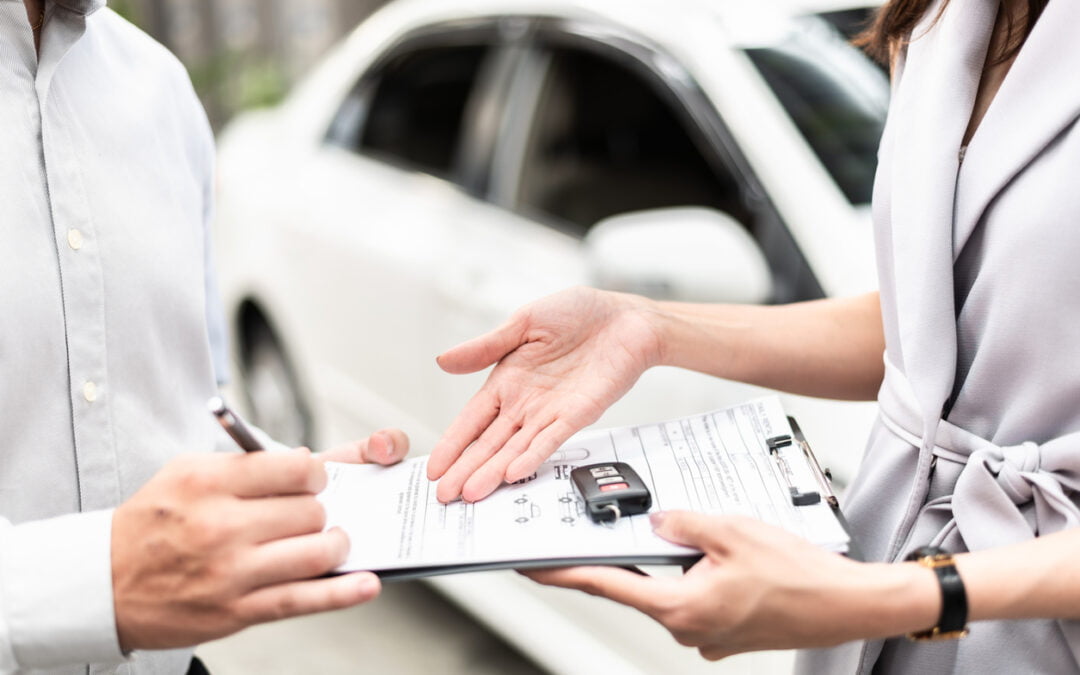Over the past few years, leasing a vehicle has become the more affordable option for getting around town. In fact, as of 2018, 70% of Canadians chose to lease their new vehicles. But what happens if you want out of your contract? Some Canadians choose to transfer their lease to another party due to changes in their financial or personal situation. We discuss leasing vehicles and how contracts work. This includes defining what a lease takeover is and what the benefits and risks they present.
What is a vehicle lease?
A vehicle lease is almost like renting your car for a distinct period of time, with the option to buy it out at the end of the term. Conditions that typically go along with this type of arrangement are:
- You are paying to use the vehicle rather than buying the vehicle.
- It is a contract between yourself and a leasing agency, with certain conditions laid out that both parties agree to.
- At the end of the lease, you have the option to either buy out the vehicle at the cost set out in the agreement or hand the vehicle back into the leasing agency.
- If you decide that you want to get out of the lease early, you may have the option to enter into a lease takeover.
What is a lease takeover?
A lease takeover involves the transfer of a lease from the original buyer to another person. As the original owner, you may decide that you want to get out of the contract early due to a personal or financial situation. A lease takeover can also be cheaper for you than returning a vehicle while still in the agreement. Should you decide to take over the remainder of someone else’s lease, a lease takeover or transfer/swap can help solve a temporary car need you have without being set into a typical two- to four-year lease or buying a new car. You assume the lease before it ends. In doing so, you agree to the vehicle and current terms and conditions of the contract.
Before you consider a lease takeover, you should understand how a takeover works.
How a lease takeover works
If you decide that you want to find someone to take over your car lease, it is not simply a matter of finding a taker. Once you find someone to take over the lease, they will need approval by the finance company that holds the lease. A credit check is mandatory to ensure that they will be able to keep up with the payments and have a good credit history. It’s important to vet the potential candidate carefully. If they get approval, the new owner will need to set up new license plates.
Terms of a lease contract
If you decide that you want to purchase a lease takeover, you should become familiar with the terms of the lease:
- Residual value: This is the vehicle’s value at the end of the term. You may buy out the vehicle at this price or hand the vehicle back into the dealer.
- Market value: If the vehicle is sold privately, it may be higher or lower than the residual value.
- Terms: This is the length of the lease, and you must agree to the remainder of the lease terms.
- Kilometre limits: The original lease agreement will set a limit of kilometres allowed, and going over the limit will require you to pay the additional costs listed in terms of the lease.
- Transfer fee: There may be a fee for transferring the lease from the previous owner to you.
- Wear and tear: If there is deterioration or damage beyond what the leasing company deems as ‘normal during the term of the lease’, the new owner will be required to pay for the repairs.
Benefits of a lease takeover
There are many benefits to taking over a lease:
As the original lessee:
- It allows you to get a newer vehicle without a loan.
- It can save you the fees associated with breaking your contract mid-term.
As the new owner:
- Lower start-up costs: There is no down payment requirement, making start-up costs much lower.
- Lower monthly payments: When a vehicle is leased, the lease owner is paying only for the depreciation of the vehicle.
- Incentives: You may benefit from incentives from the owner if they are motivated to leave their lease early.
- Market value versus residual: If the market value is higher than the residual value at the end of the term, you may make a profit if you choose to buy out the vehicle.
Potential risks of a lease takeover
According to ratelab.ca, there are some risks with a lease takeover:
- You inherit the monthly payment: There is no renegotiating the monthly payment and lease terms of the original owner. If they are a poor negotiator, have no down payment, or have bad credit, it may result in a higher cost of financing for you.
- Mileage can be very limited: If the limits left on the vehicle are exceeded, you can face excess mileage charges from 10 to 25 cents per km or more.
Important: You might want to order a vehicle history report. A report can tell you if the car was in a major accident or has any past damage. Also, be sure to have a vehicle inspection by a reliable mechanic prior to signing.
- Wear and tear: You are responsible for the car’s condition after you take over the lease. If the vehicle has a lot of dents, broken parts, burns or stains, worn tires or other damage, you may be hit with a charge at the end of the lease for excessive wear and tear.
- Maintenance: Wear and tear fees may also apply if the original lessee didn’t get the car serviced according to the manufacturer’s suggested schedule. You can face charges for failing to properly maintain the car or for the cost of completing overdue services. Ask the original lessee for service records to confirm the car underwent required maintenance.
- You might pay even more fees: Some hidden fees that you may have to pay when you take over a lease are: Lease Transfer Fees, Credit Application Fees and Disposition Fees.
If you’re planning to get out of your vehicle lease early, be sure that you vet the potential buyer before they take over the lease. Also, remember to read the terms of your lease carefully. Should you be considering a lease takeover, just remember to do your homework. Make sure the car was cared for and take the time to understand any potential fees or taxes. This may include those you’ll need to pay at the time of the lease takeover or at the end of the lease. If you still have questions or require a new auto insurance policy, contact one of our isure representatives today.




